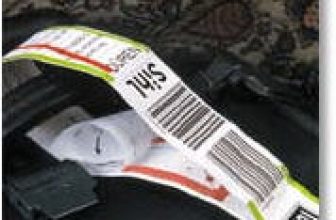
Arab Emirates Airlines invests in testing RFID in three airports
[ad_1]
Arab Emirates Airlines announced that it is testing the latest RFID technology in baggage handling in partnership with London Heathrow Airport, Dubai International Airport and Hong Kong International Airport.
This company will invest 2 million AED yuan to carry on the experiment, compare with the existing bar code tracking system in terms of performance and economy. During the six-month trial period, approximately 500,000 bags of luggage on the company’s flights were tagged with RFID chips.

Because more people travel by air around the world and travel more frequently, flydubai hopes that its investment will help fundamentally change the method of baggage tracking and monitoring, and provide innovative solutions to deal with the increase in baggage year by year.
Dale Griffith, Senior Director of Emirates Airline, said: “This includes the latest technology that is beneficial to our customers. We are very pleased to be able to carry out this wide range of trials with our airport partners. Our investment in this project is small, but It can make our customers more at ease.”
“Previous small-scale RFID experiments conducted by others have shown that this technology has almost eliminated the misreading of the scanner, greatly improving the processing efficiency of the baggage system and customer satisfaction. Now we are conducting experiments in three major airports. It is much larger, including Dubai Airport in the Arab Emirates, so that the trial will include more aspects of baggage handling, including international transportation.”
Since 58 double-decker A380 aircraft entered the Emirates service, the amount of baggage to be handled by each aircraft has doubled. The airline is eager to find a new way to improve the baggage handling system and ensure customer satisfaction.
Mr. Griffith added: “We look forward to sharing the results of this trial with IATA. We know that it will develop applications in this area. If this trial is successful as we expected, the Arab Emirates will encourage all airports on its network to adopt This technology. Test results may become a new industry standard in baggage handling.”
RFID equipment has been installed at the check-in counters of the Emirates Airline in the three participating airports. During the test, the trained staff will affix the tag with the RFID chip to the luggage bag as a normal registration procedure. The chip stores information such as the unique identification number and route of the duffel bag. In addition to the embedded RFID chips, these luggage bags continue to be affixed with traditional barcodes.
When the chip passes through the baggage system of the airport, it will be read so that the baggage can be sorted, screened and sent to the plane. The arriving baggage is read at the entrance of the baggage system, received, and enters the system for effective tracking. The chip enables the luggage bag to be tracked at every stage of the journey, reducing the error rate of luggage.
In the future, RFID technology may also enable airlines to send cultural and sports information to notify passengers when their luggage arrives in the luggage room. So when they start on vacation or business trip, there is one less thing to worry about. (Text/Jiang Bingkui)
[ad_2]





